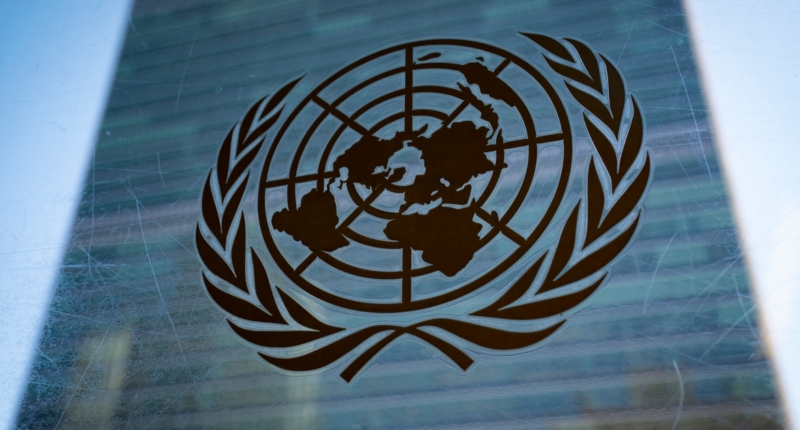The United Nations’ Commission on the Status of Women has called for concerted efforts to address the gender digital divide and protect women from online harassment. The commission adopted a document that calls for equal quality education in science, technology, engineering, mathematics, information and communications technology, and digital literacy for women and girls. It also highlights the “new face of gender inequality,” with 259 million more men than women online last year. A survey cited by the commission revealed that three-quarters of female journalists from 125 countries had experienced online harassment in the course of their work, with a third engaging in self-censorship in response. The document reaffirms the importance of women’s human rights, including their right to control and decide on matters related to their sexuality, free from discrimination, coercion, and violence.
UN Commission Urges Closing Gender Digital Divide and Zero Tolerance for Online Harassment
The United Nations’ Commission on the Status of Women has called for significant efforts to bridge the gender digital divide and end gender-based violence and harassment online. In a document approved by consensus after all-night negotiations at the end of a two-week meeting, the commission expressed serious concern about the interrelation between online and offline violence, harassment, and discrimination against women and girls. It also condemned the increase in these acts.
The commission called for a notable increase in investments by both public and private sectors to close the gender digital divide. The commission also urged the elimination of obstacles that impede women and girls’ equal access to digital technology and the creation of new policies and programs to achieve gender parity in emerging scientific and technological fields.
The commission’s executive director, Sima Bahous, hailed the document as “game-changing” in promoting a blueprint for a more connected world for women and girls. She added that the challenge now is for governments, the private sector, civil society, and young people to turn the blueprint “into reality for all women and girls.”
At the beginning of the commission’s two-week meeting, the UN Secretary-General, Antonio Guterres, stated that the focus was timely because women and girls are being left behind as technology races ahead. Guterres revealed that three billion people are still unconnected to the internet, with the majority being women and girls in developing countries. In least developed countries, only 19% of women are online. Globally, girls and women represent just one-third of students in science, technology, engineering, and mathematics. Moreover, men outnumber women two to one in the tech industry.
In conclusion, the UN commission has called for a zero-tolerance policy for gender-based violence and harassment online, an increase in investment in both public and private sectors to bridge the gender digital divide, and new policies and programs to achieve gender parity in emerging scientific and technological fields. The implementation of these measures is necessary to promote a more equal and connected world for women and girls, as stated by the commission’s executive director.
UN Commission Calls for Closing Gender Digital Divide and Ensuring Online Safety for Women
Sima Bahous, executive director of UN Women, highlighted the “new face of gender inequality,” stating that 259 million more men than women were online last year, calling for measures to close the gender digital divide. A survey cited by Bahous revealed that three-quarters of female journalists from 125 countries had experienced online harassment in the course of their work, with a third engaging in self-censorship in response.
The 45-member commission adopted the “agreed conclusions” document on Saturday, calling for equal quality education for women and girls in science, technology, engineering, mathematics, information and communications technology, and digital literacy to enable them to succeed in the fast-changing world. The document has 93 paragraphs, and the negotiations were characterized by intense debates over language on gender-based violence facilitated by technology.
The document reaffirms the 1995 Beijing platform adopted by 189 countries, which declared for the first time in a UN document that women’s human rights include the right to control and decide “on matters relating to their sexuality, including their sexual and reproductive health, free of discrimination, coercion and violence.”
During the negotiations, language on women’s rights and human rights was challenged by Russia, Indonesia, Malaysia, the Holy See, Cuba, and China. In the end, the only issue that blocked consensus was Pakistan’s insistence on adding a reference to “foreign occupation” to the document, which Israel strongly opposed. The reference was not included, and Pakistan’s representative expressed regret that the needs and priorities of women from developing countries facing humanitarian crises, including foreign occupation, were not included.
In conclusion, the UN commission has called for measures to close the gender digital divide and ensure online safety for women, highlighting the challenges of gender inequality in the rapidly changing world. The commission also reaffirmed the importance of women’s human rights, including their right to control and decide on matters related to their sexuality, free from discrimination, coercion, and violence.
Don’t miss interesting posts on Famousbio
